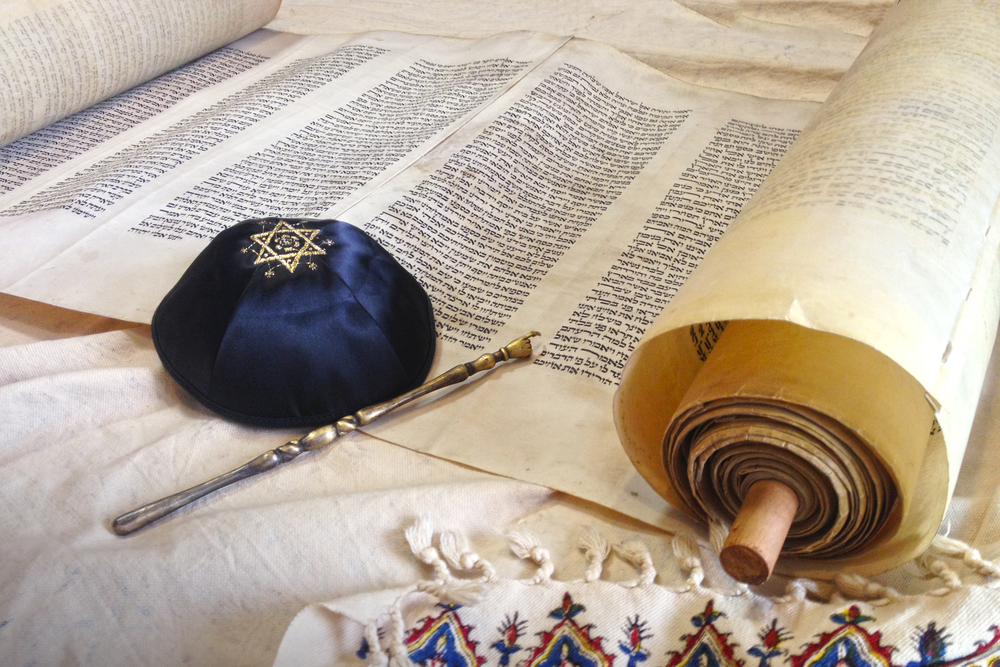
Modern religious views about astrology are mixed. Many conservative Christian sects view astrology as incompatible with their faith. When it comes to Judaism, things get a little more complex. Understanding how Judaism and astrology connect takes a little examination, but it can shed some light on how religion looks at the stars.
What Do the Torah and Tanakh Say?
You may remember the first creation narrative in the Torah. Genesis 1:14-18 depicts God making the Sun, Moon, and stars, placing them in our skies as lights for day and night. That passage also mentions these celestial bodies helping us measure days, years, and seasons. After that, however, things get a little fuzzy.
It looks like the prophets take a dim view on astrology, but none of the mitzvot expressly forbid it. My Jewish Learning mentions a quote from Jeremiah, admonishing the ancient citizens of Judah to “be not dismayed at the signs of heaven; For the nations are dismayed of them.” A little later in the Tanakh, the prophet Isaiah sarcastically declares, “Let the astrologers and stargazers save you.” What’s ironic is that Daniel, one of the Tanakh’s most memorable figures, was the chief of the astrologers, magicians, and diviners under Nebuchadnezzar II.
The Medieval Rabbis and Astrology
Some Talmudic rabbis viewed astrology as a valid practice but contended that Jewish people were immune to the stars’ influence. “Ein mazal l’Yisrael,” declares Shabbat 156a of the Talmud. There is no constellation for Israel: God is greater than the stars, a truism existing as far back as Abraham. Maimonides, a 12th-century Sephardic scholar, was a notable exception. He saw the practice as contrary to human free will and divine providence, adding that the mitzvot prohibiting witchcraft and divination also applied to astrology. Maimonides didn’t write off the zodiac altogether, but he used it in an astronomical context.
Even though we’re long after the Talmud’s creation, the story of Judaism and astrology doesn’t end there. The Talmud offers a more complicated view of the subject. David A.M. Wilensky mentions that the same Talmud passage contains a story in which Abraham muses whether Jupiter’s position points to his and Sarah’s inability to conceive a child. Wilensky interviewed astrologer Lorelai Kude, who discusses Numbers’ description of the ancient Israelites encampment. This encampment pattern surrounded the Tabernacle, and the banner of each tribe depicted its representative zodiac sign. Ohr Somayach’s “Ask the Rabbi” column lists each tribe’s sign.
Kude, a Graduate Theological Union student who wrote her master’s thesis on the subject, adds that the rabbis were versed in astrology. Many had ambivalent attitudes towards the practice. However, evidence of it exists in artwork, literature, and even synagogue architecture. Kude mentions Berkeley University’s Magnes Collection of Jewish Art and Life, which has an exhibit of baby-swaddling bands imprinted with the infants’ zodiac signs.
Modern Judaism and Astrology
Contemporary Jewish views are divided about astrology. Some include it under the same umbrella as magic, while others write it off as another New Age method. Still, others don’t oppose astrology, but they see it more as a tool to understand God’s creation. Kabbalistic astrology applies Kabbalah, a branch of Jewish mysticism, to interpreting planetary positions and natal charts. As a Jewish scholar and astrologer, Lorelai Kude applies Jewish spiritual concepts in her astrological practice. She refers to texts like the Sefer Yetzira, but she looks at other factors such as the Torah portion assigned on a person’s birthday.
Judaism and astrology aren’t two things that most people expect to go together. Yet as our world continually proves, life is often more complex that we may think. There are many ways to be Jewish, and astrology may be a valid part of one’s spiritual practice. As history reveals, the two have a unique and fascinating relationship.

